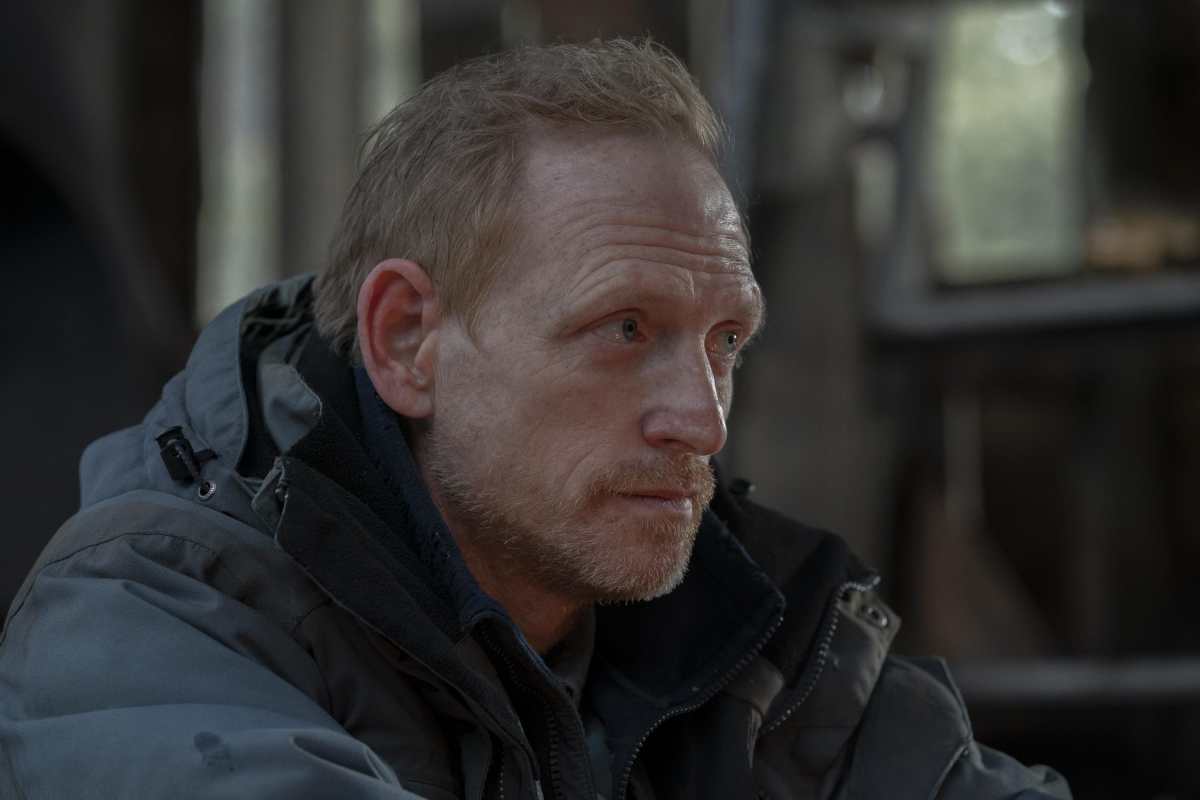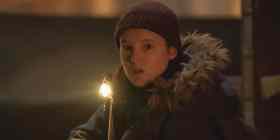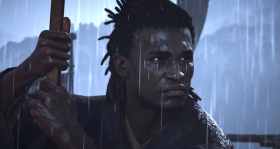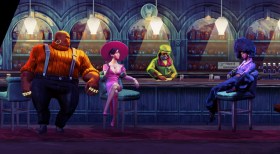Episode 8 of The Last of Us HBO introduces one of the biggest antagonists of the first game, David, portrayed in the series by Scott Shepherd. David is a preacher and the leader of his faction at Silver Lake Resort, and this episode highlights possessive leadership in a world gone awry, and explores his dark nature during his encounter with series protagonist Ellie (Bella Ramsey).
Troy Baker (Joel’s original voice and motion capture actor on The Last of Us Part I & II) also makes his first appearance in the series as James – David’s right-hand man – and their dynamic is explored in greater depth.
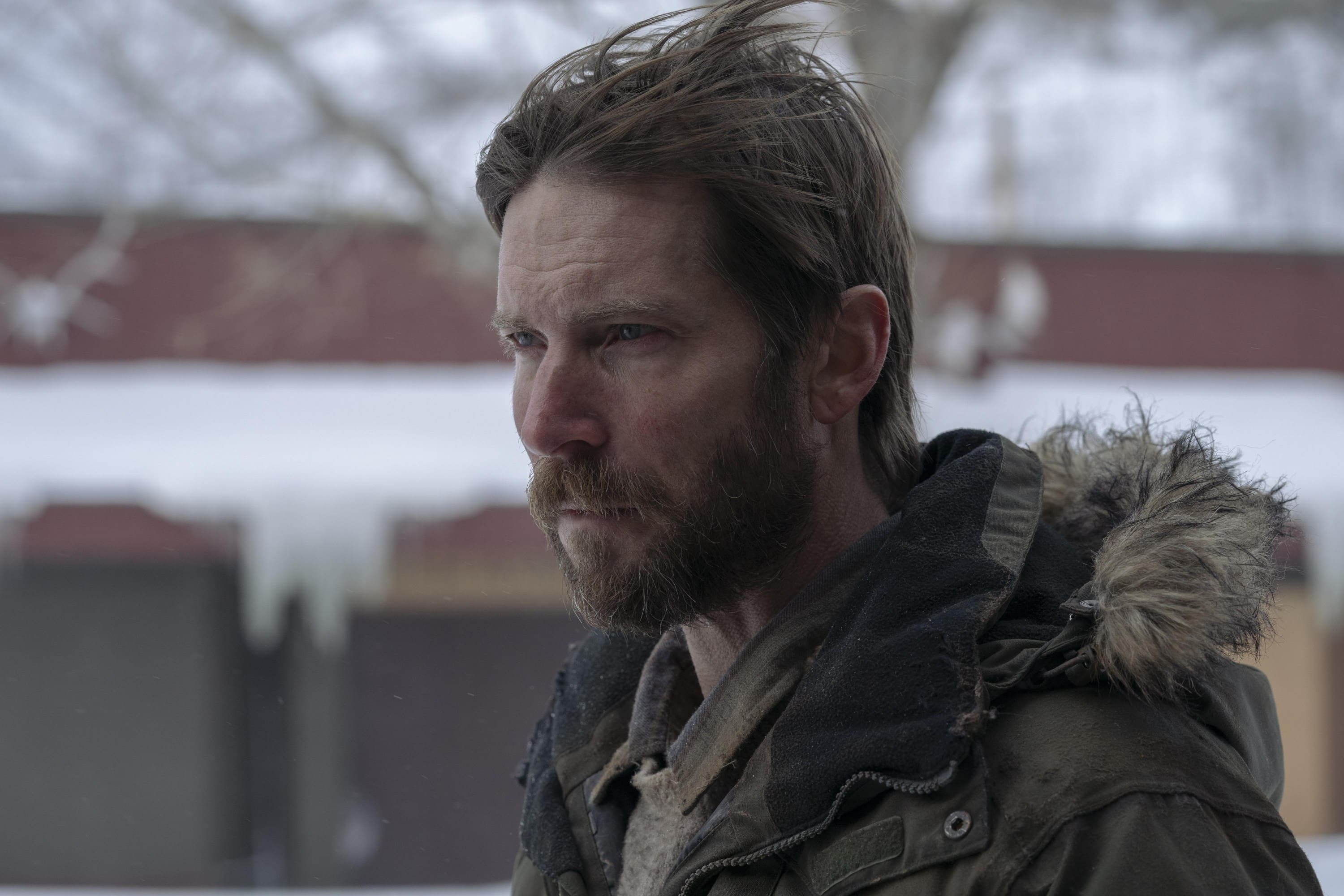
We also see Ellie continue to provide care for Joel (Pedro Pascal), navigating challenging moments in approaching his medical care and embarking out into the world on her own. This episode also communicates Joel’s protective instincts towards Ellie, as he takes a much more violent and urgent approach to finding her after discovering she has been taken by David and members of his community.
In this recap of HBO’s The Last of Us Podcast Episode 8, we’ll discuss the core psychologies behind this episode’s core antagonist David, as well as this episode’s more emotional and impactful moments as discussed by Showrunners Craig Mazin (Chernobyl), Neil Druckmann (Creative Director on The Last of Us Part I & II), and host of the podcast Troy Baker, as well as compare and contrast the HBO adaptation to the base games. You can find the podcast on most streaming services.
HBO’s The Last of Us Podcast Recap – Episode 8 – ‘When We Are In Need’
- Religious connotations in David’s faction
- Comparisons between Jackson and Silver Lake Resort
- David’s narcissism and manipulation tactics
- Ellie’s survival instincts and reunion with Joel
- Additional analysis and notable quotes
Religious connotations in David’s faction
Episode 8 provided a deeper insight into David’s character, above and beyond his portrayal in the game. The episode opens by introducing him as a leader of his religiously coded faction, who have made a home for themselves at Silver Lake Resort.
Craig Mazin commented on the wider introduction to his community, saying the adaptation gave the team an opportunity to showcase them in a more ‘humane’ way which differed from Ellie’s fixed perspective of them in the first game.
The introduction of scripture was a conscious choice, which Mazin said communicated David’s personal goals, as well as the ability to provide his idea of ‘comfort’ to those within the community, as many rely on him as both a source of spiritual guidance and protection.
Mazin mentioned that the Bible verse David recites in the cold open of the episode represented ‘rebirth’, admiration for a new world, and moving past ‘tragedy and grief.’ He stated that this verse specifically was one David referred to every time death occurred in his community, reinforcing his ‘call to maintain faith even in the face of tragedy and loss.’
Comparisons between Jackson and Silver Lake Resort
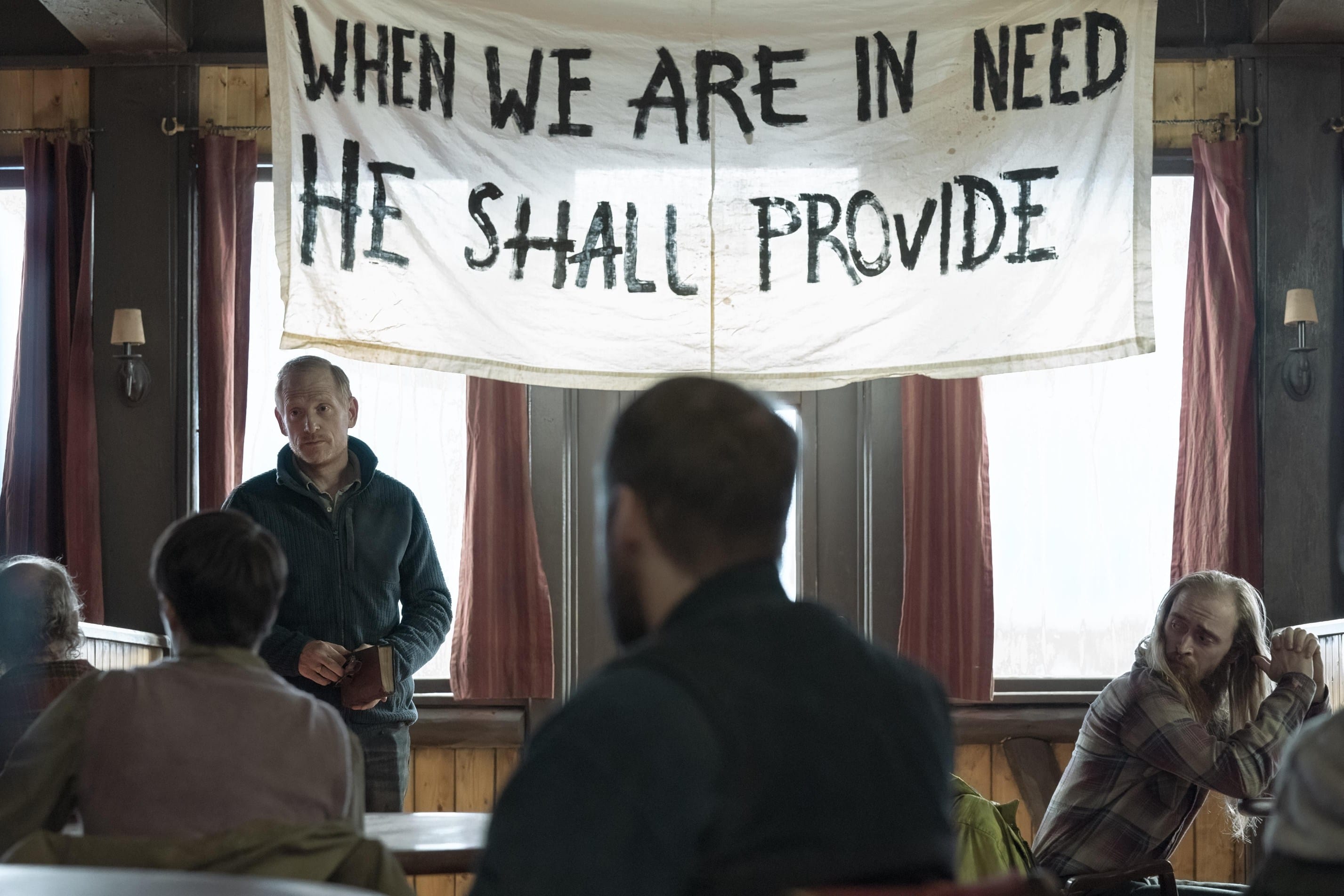
Troy Baker pointed to comparisons between Tommy and Maria’s town of Jackson (which was first seen in Episode 6), and Silver Lake Resort. He remarked that both communities represent ‘two possible outcomes’ in this world, as Jackson is a prosperous and functioning society, and Silver Lake Resort is an ‘underbelly’ which operates through ‘fear and oppression.’
Mazin noted some of the ‘scientific’ aspects that contributed to David’s faction functioning less successfully, as both he and Druckmann stated they were simply ‘unlucky’ with the location they had chosen to build on.
Mazin mentioned that as Silver Lake Resort resides in Colorado, the resort would most likely be a beautiful sight in Spring, offering a bounty of nature and game in its surrounding areas. However, in less forgiving seasons like Winter, this location would be almost ‘unrecognisable’, and food would eventually run out as the town continually battles against the elements.
He also mentioned that as this community is so far removed from other settlements, it would contribute to the town’s starvation and lack of survival from a logistical standpoint.
This also led to some interesting discussion around both towns’ approaches to leadership, as David’s community have adopted theocratic principles, and Jackson operates under communism.
Neil Druckmann pointed to David’s religious values somewhat overpowering his logical thinking, as he has fallen very far into his belief that ‘everything happens for a reason’ and neglected to prepare the town for a harsh Winter. He noted that maintaining a level of faith under extraordinary circumstances could be seen as a positive, but it is overwhelmingly clear that David has not prepared in the same way that Jackson has.
Mazin mentioned that when looking at theocracies around the world, states are often doomed to fall under this kind of leadership, noting that David has also bestowed his values of a ‘patriarchal theocracy’ onto his community.
He said it was interesting to see how this version of society functioned, as opposed to a democracy built on secular law run by both men and women. Mazin also mentioned that Jackson is run on the ‘bedrock principles of law’, as Maria was formerly a prosecutor before the outbreak.
Druckmann also pointed to David’s mindset as a narcissist, saying that every decision he makes ‘is about him and the love that he receives’, which has contributed to the fall of their town. Druckmann also noted that because of his narcissism, he is extremely confident in the face of adversity and is able to make tougher calls that others aren’t as quick or willing to.
David’s narcissism and manipulation tactics
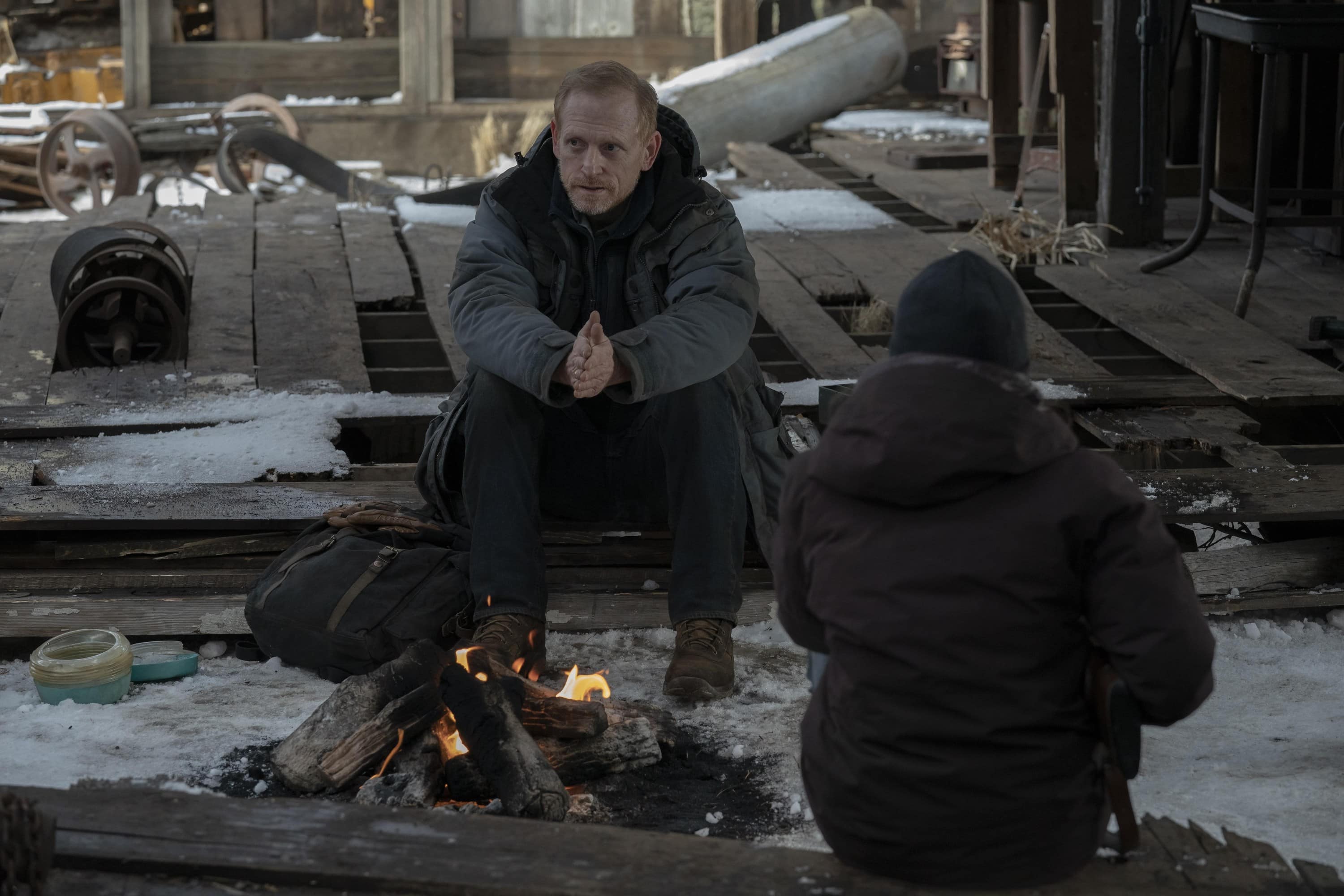
Druckmann and Mazin had extensive discussions on David’s misguided attraction to Ellie, and Mazin mentioned the first scene where the two first encounter each other is the immediate moment this attraction forms in his mind.
He mentioned that David is ‘lit up’ by someone who is so far removed from the community he is currently a pastor for, and is ‘intensely attracted’ to her ‘force of nature’, and ‘power.’ Druckmann elaborated on this, saying that as David has already broken so many people within his faction and refers to them as sheep, he sees a confidence in Ellie that deviates from his followers.
Druckmann said that as David holds himself in higher regard to everybody at Silver Lake and feels no one is able to level with him. He’s attracted the prospect of having someone as resistant and headstrong as Ellie fall in love with and look up to him.
As David and James also recognise Ellie as Joel’s accomplice to the man murdered within their community, Mazin noted that her presence in this violent act was also a possible contributor to his attraction.
Druckmann also referred to David as a ‘master manipulator’, as during their conversation in the sawmill, he makes an effort to let Ellie feel as if she is the one in control, when in reality he is aware of the situation the entire time.
Mazin also referred to this scene as an important moment in humanising David and the world around him, as though his true nature is revealed later on, it was important to initially convey moments where he could be perceived as a ‘good guy.’
Speaking on deviations from the video game, Mazin added that these moments in the series were about ‘shrinking the world’ down to centre on Ellie and David, as David is carefully creating a circumstance whereby Ellie will ‘want to’ lean forward. In the first game, Ellie and David’s conversation takes place after the two fight a horde of infected together, and they are ‘bonded by a certain trust because of gameplay.’
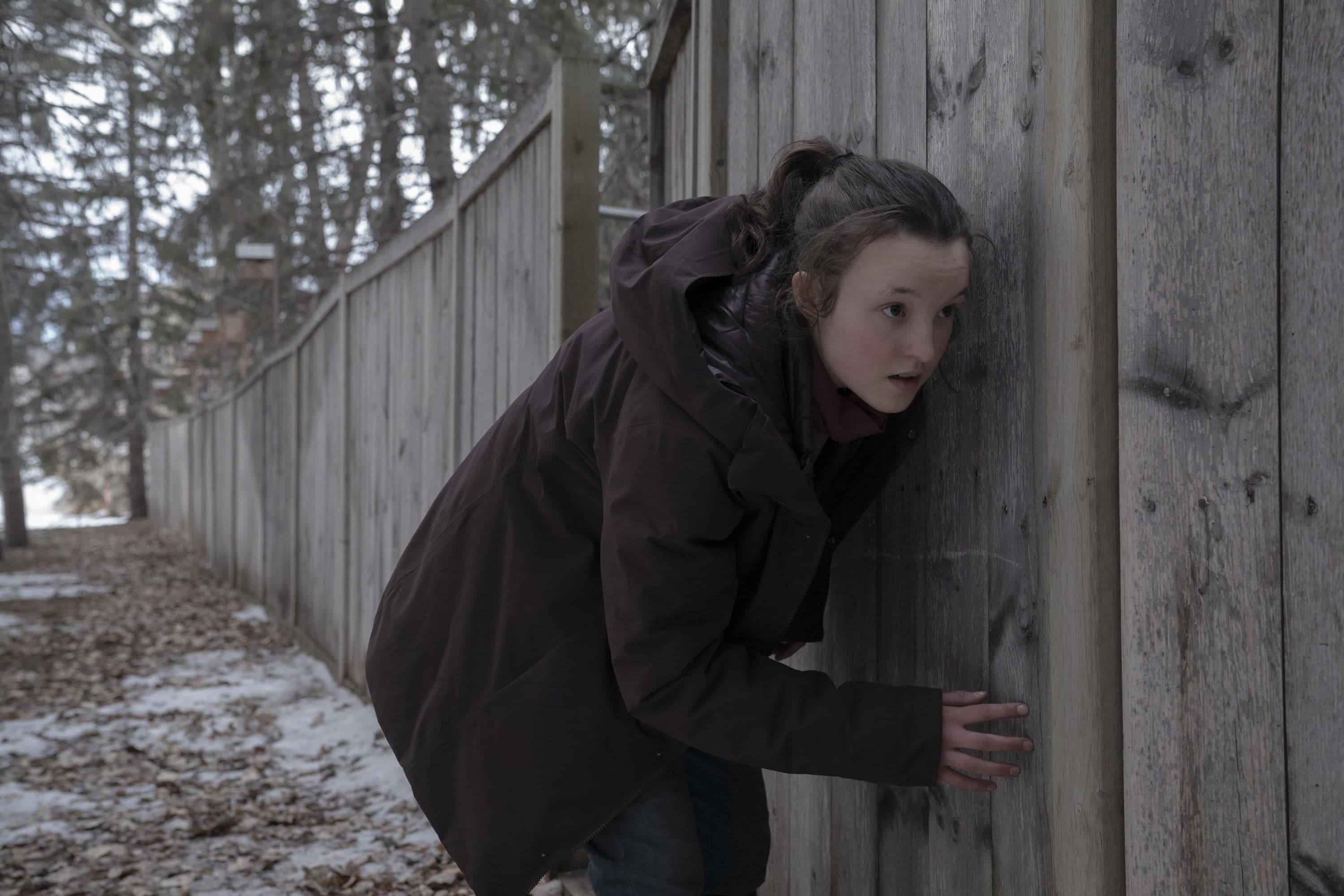
Mazin said that whilst they could have adapted this gameplay sequence, they felt the plot implications of seeing infected surrounding the area would permeate throughout the episode. Seeing the conversation play out between the pair without this prelude allowed their dynamic to function in a different way.
He noted that David shows a certain kindness towards Ellie, letting her make jokes at his expense, and David knows he has Ellie ‘hooked’ to some degree when she inquires about his faith.
He also said that upon realising that David is referring to her and Joel during their conversation, Ellie takes ‘three seconds too long’ to respond, as she is so engrossed with the story he is telling. He mentioned that this is the first time in the series we see this kind of reaction from her, as rarely anyone has been able to fool Ellie up until this point because she is always one step ahead of her opponent.
Mazin also refers to David as ‘the model of a gaslighter, a manipulator, and an abuser’, and referenced the scene in which he strikes Hannah (the young girl whose Father was murdered by Joel) after her comments that Joel and Ellie should both be killed as punishment.
Mazin mentioned that David reaching his hand out to Hannah after this assault, inviting her to take his hand instead of merely helping her up, communicated the thought in her mind that she is the one accepting this offer, thus negating any responsibility from David’s side. Druckmann added that this particular moment echoes the ‘DNA of abusive relationships.’
David’s religious beliefs are also reinforced here, as he tells Hannah she is ‘never without a Father’, which Mazin noted is his way of communicating his idea of love, though it is ‘about the most patriarchal thing you could possibly say.’ Mazin added that in David’s mind, these abusive actions signify love, but reinforce that he is someone who doesn’t have a fundamental understanding of love in its truest form.
The team also spoke to the scenes where David is holding Ellie captive, saying that the conversations that happen in these moments communicate a ‘more developed truth’ about David which expands on more than just his misguided attraction.
Mazin spoke to David’s explanation that the Cordyceps virus is what ‘set him free’ and points to his definition of love. David explains that the fungi are fruitful and multiply, securing their future and protecting their own with violence if it must. He says that the explanation of the Cordyceps ‘securing a future’ compared to a ‘white supremacist anthem’, as David has taken ideals of a xenophobic, protective, defensive, insular, tribalistic love to its furthest extreme. He has an admiration for the Cordyceps virus because this is what they reflect.
Druckmann also noted that whilst David tries to connect with Ellie saying that the pair both share ‘violent hearts’, Ellie is a character who is ‘overflowing with empathy’ even though she possesses some violent tendencies. Mazin added that Ellie has the capacity to hold both beautiful and violent love within her, and David is only capable of holding a ‘dark’ and ‘possessive’ love due to his narcissistic personality.
Ellie’s survival instincts and reunion with Joel
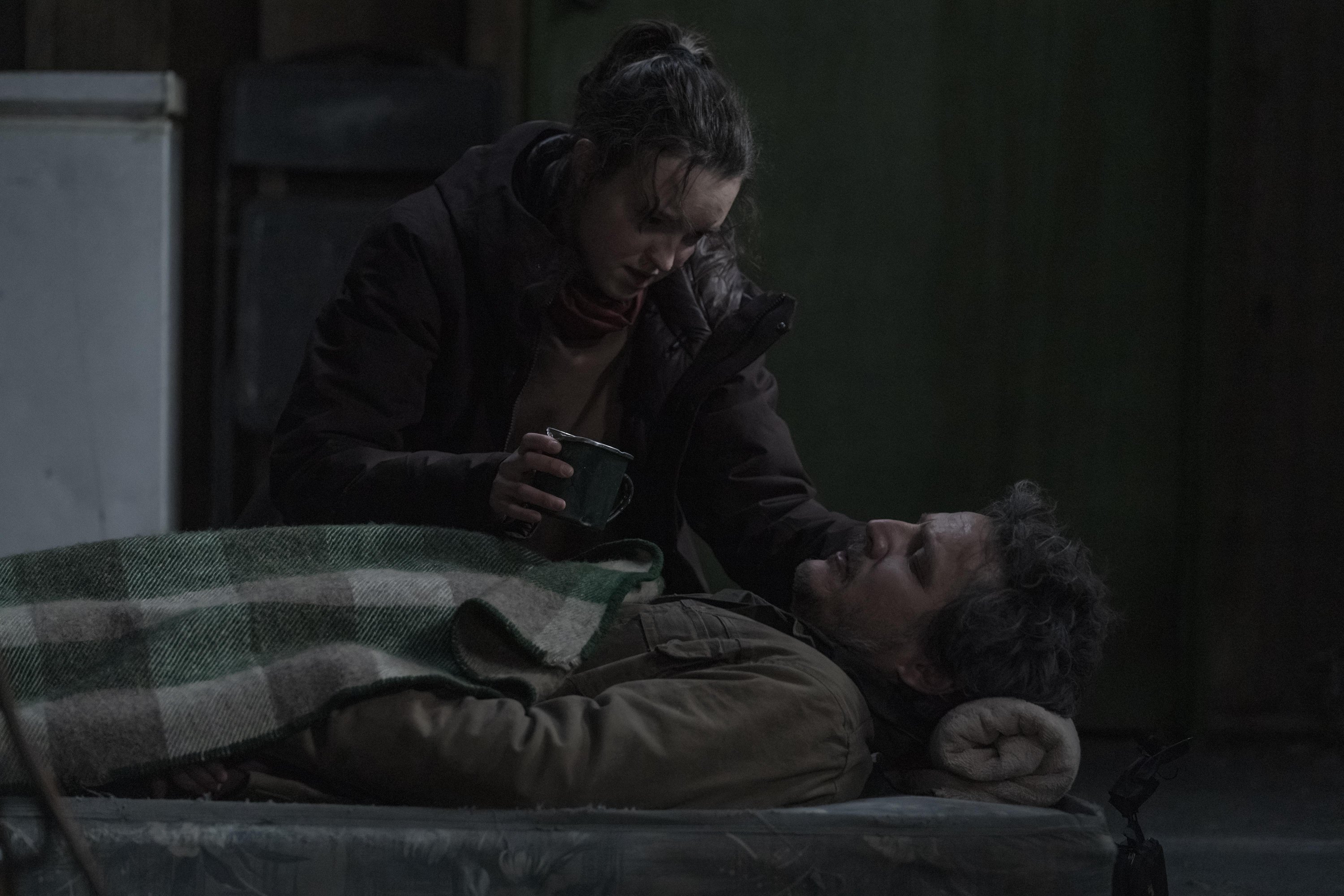
Ellie has become a caretaker to Joel over the course of the last few episodes, and Episode 8 in particular presents her with the reality of Joel’s condition. The team mentioned these scenes communicated Ellie’s approach to navigating the situation, specifically as a child with little knowledge of how to provide any kind of medical care.
Druckmann refers to the moment Ellie injects Joel with penicillin as a moment of ‘blind faith’, because she sincerely doesn’t know what dosage to give him, where to apply it, or whether it will even be successful. He added that the moments after this first injection where Ellie leans into Joel, was a moment he felt he was truly seeing Ellie and Joel, and not Bella [Ramsey] and Pedro [Pascal].
Mazin said that her deciding to pick up a rifle and hunt for food stemmed from her ‘aspiration’ to be more like Joel, as she realises this is something he would do if their roles were reversed.
Mazin added that the rifle used whilst filming was not a prop, and the team stressed gun safety during production as the rifle was unloaded, but was still very heavy for Bella Ramsey to hold. He mentioned that throughout takes, he would often need to remind Ramsey to lift the weapon as she would struggle to hold it upright. This was reflective of Ellie’s experience in the episode, as she wasn’t fully versed in using the rifle, but attempted to remain authoritative and confident with it throughout each scene.
When discussing the scenes where David is holding Ellie captive, Druckmann said Ellie held some leverage in not revealing her name, as she is denying David’s attempts to build trust with her at every step.
Mazin noted that he had to explain a line to both Bella Ramsey and Ali Abbasi (Director of Episode 8, referring to the ‘oh’ Ellie mutters seconds before she breaks David’s finger and eventually reveals her name in a dramatic manner. He said that this line was a calculated opportunity for Ellie to take advantage of David, playing along with his intentions before attempting to take the keys to the cell from him.
He mentioned he would refer to Ramsey as a ‘little savage’, as she was able to deliver these moments of defiance in such ‘terrifying’ and ‘animalistic’ ways even in the midst of Ellie’s physical pain.
When James and David re-enter the cell, Ellie is in fight-or-flight mode as she reveals her ‘infection’ to them. Druckmann refers to this sequence depicted in the first game as a ‘chess game’ between Ellie and David, as David desires to assert control, and Ellie is unknowingly about to take this control as she has an ‘ace up her sleeve.’
Mazin mentioned that David has reduced Ellie to her most primitive instincts, and this moment was a chance for her to use her intellect to buy herself time before entering a standoff with David.
Mazin also praised Ramsey for her ability to portray the effects of trauma so accurately during the moment Ellie kills David, saying that the crew had given her ‘no restraints’ for what needed to be delivered for the scene.
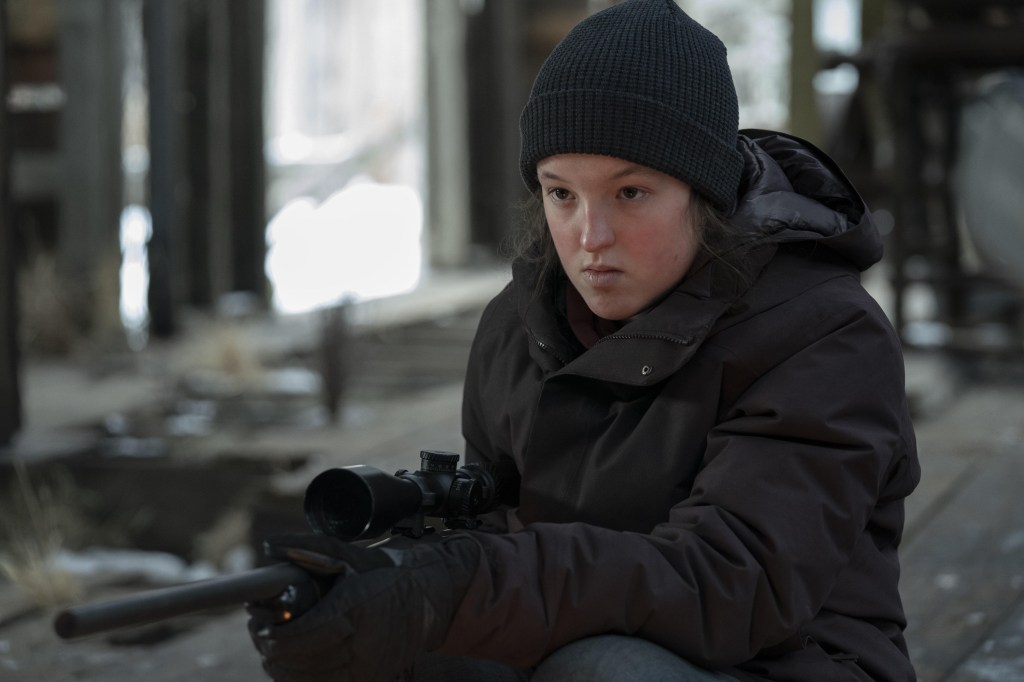
Druckmann also noted that this scene in the series was a much more ‘disturbing’ depiction than what was presented in the video game, and Mazin added that due to it being adapted to live action, there is less separation between the audience and reality and it is much more visceral to watch.
Ellie’s reunion with Joel is also slightly changed from the video game. In the adaptation, Joel finds her after she has just murdered David, as opposed to pulling her away from her assault on David.
Druckmann and Mazin said this change stemmed from conversations over them not wanting the scene to take place with fire engulfing the two, as it communicated a sense of danger, and also addressed logistical concerns as to how Joel would enter the cabin when David was in possession of the keys.
Druckmann mentioned this scene in particular was a crucial moment when constructing it for the first game, as the entire story hinged on Ellie and Joel’s caretaker role reversal. He felt the moment the pair reunited was important to communicate correctly, as if audiences didn’t feel the emotional beats of this sequence, it meant the rest of the story equally wasn’t being understood.
When adapting this moment to the series, Mazin said they wanted their version of Ellie to have completed her killing of David to the point where she was literally walking away from it on her own.
Druckmann added it was important for audiences to know that Ellie was able to save herself, as opposed to Joel physically coming to her aid. But at this moment, Joel instead saves her emotionally in the way that a parent does.
Additional analysis and notable quotes
- Craig Mazin – (Referencing the meaning of the Bible verse recited during the cold open) ‘It’s about re-birth… it’s about the idea that there can be a new world that is better than the world that we know, or have left behind… It is also a verse about moving past tragedy and grief.’
- Craig Mazin – (Comparing the success of Jackson to Silver Lake Resort) ‘I believe very strongly in the separation of Church and State. Not only because it’s important to protect people who are of religious minorities, but because religion doesn’t do a good job of running a state. I believe religion does a terrible job of running a state… The people that tend to end up running theocracies… are probably not as Godly as they think.’
- Craig Mazin – (Referencing David’s character) ‘This guy is the model of a gaslighter, a manipulator, and an abuser.’
- Craig Mazin – ‘This is what bad people do – They make you crave their approval, and then when they give you the approval it makes you feel things that you probably shouldn’t be feeling. That’s how they manipulate you.’
- Craig Mazin – (Referencing the fight sequence between Ellie and David) ‘In survival mode [Ellie’s] life means nothing. [David’s] life means nothing. The only lives [Ellie] cares about are her own and Joel’s.’
- Neil Druckmann – (Referencing the moment Ellie kills David in Episode 8) ‘We [wanted] the audience, or the player, to think Joel is going to save Ellie… because that’s what this character traditionally does… It was important that… Ellie saves herself.’
For further analysis and reading on the HBO adaptation of The Last of Us, you can check out the following articles:
- A spoiler-free review of the entire first season of The Last of Us HBO TV series
- The Last of Us HBO TV series: Cast and Character Guide
- The Last of Us interview: Henry and Perry actors examine their work
- The Last of Us interview – Storm Reid on portraying Riley
Episode recaps and analysis:
- The Last of Us – Episode 1 Recap – ‘When You’re Lost in the Darkness’
- The Last of Us – Episode 2 Recap – ‘Infected’
- The Last of Us – Episode 3 Recap – ‘Long, Long Time’
- The Last of Us – Episode 4 Recap – ‘Please Hold to My Hand’
- The Last of Us – Episode 5 Recap – ‘Endure and Survive’
- The Last of Us – Episode 6 Recap – ‘Kin’
- The Last of Us – Episode 7 Recap – ‘Left Behind’
- The Last of Us – Episode 8 Recap – ‘When We Are in Need’
- The Last of Us – Episode 9 Finale Recap – ‘Look for the Light’
Behind-the-scenes podcast recaps:
- The Last of Us Podcast – Behind the Scenes of Episode 1 – ‘When You’re Lost in the Darkness’
- The Last of Us Podcast – Behind the Scenes of Episode 2 – ‘Infected’
- The Last of Us Podcast – Behind the Scenes of Episode 3 – ‘Long, Long Time’
- The Last of Us Podcast – Behind the Scenes of Episode 4 – ‘Please Hold to My Hand’
- The Last of Us Podcast – Behind the Scenes of Episode 5 – ‘Endure and Survive’
- The Last of Us Podcast – Behind the Scenes of Episode 6 – ‘Kin’
- The Last of Us Podcast – Behind the Scenes of Episode 7 – ‘Left Behind’
- The Last of Us Podcast – Behind the Scenes of Episode 8 – ‘When We Are In Need’
- The Last of Us Podcast – Behind the Scenes of Episode 9 – ‘Look for the Light’
The Last of Us is now streaming on HBO Max in the US, and Binge in Australia.
